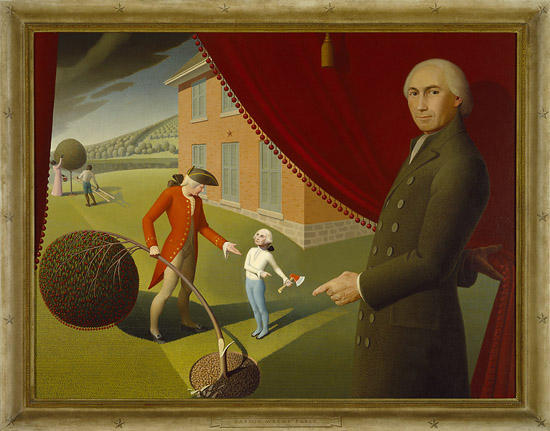We speak of a ‘born leader’ - but leadership qualities can be learned and cultivated. Also, different qualities suit different times and situations. What would it take for YOU to be a leader in your business NOW?
Leadership Qualities - Many, but not as Varied as You Think
So, it’s pretty easy to be a leader, right? Check out the many online articles about great leadership traits and skills and you will see that you too can be a leader if you are honest, confident, inspiring, committed, passionate, communicative, decisive, accountable, empowering, creative, innovative, empathetic, self-aware, enthusiastic, knowledgeable, imaginative, persistent, fair, focused and positive. (And that’s just for starters.)
In an online dating site for leaders, you’d have to have a pretty good profile to stand out from the crowd - and with honesty and integrity being vital leadership attributes, you couldn’t even lie about your age.
SHOW ME AN HONEST LEADER
While every leadership qualities list contains honesty or integrity, have a look at the leaders we have chosen to represent us on the world stage. Whatever you think of Donald Trump or Boris Johnson, neither is likely to give rise to a legend for honesty as enduring as George Washington’s - he reputedly told his father as a penitent six-year-old: ‘I cannot tell a lie, I did cut the cherry tree with my hatchet.’

Grant Wood, Parson Weems’ Fable, 1939. Amon Carter Museum of American Art.
But good leadership skills are in the eye of the follower, which is the reverse of what most people think: after all, we speak of someone being a ‘born leader’, don’t we? But the leader and the led are two sides of the same coin.
Whatever the ‘fact-checkers’ say, the adherents of Trump and Johnson do find honesty in their leaders’ unpredictability and irreverence, which sets them apart from the slick always-on-message politicians that have come to be so distrusted. So, yes, honesty is one of the qualities of a good leader - but honesty that serves a purpose.
In business, you’d want a leader who was honest in his or her dealings but who would shield team members from some of the stresses faced by the business - which isn’t being dishonest as much as, literally, economical with the truth.
The characteristics of a good leader may be many but they aren’t as varied as you might think. There are three broad categories that, together with honesty/integrity, comprise a leader’s skill set: as well as being honest, the ideal leader should be confident, inspiring and decisive.
A VOTE OF CONFIDENCE
Most leaders other than the religious variety aren’t either meek or mild. We expect leaders to be self-confident, maybe even brazen and boastful - as long as they aren’t weak. Passion and enthusiasm are infectious: how can we, your followers, be committed to a cause unless you, our leader, wear that cause (like your heart) on your sleeve?
When the Irish poet W.B. Yeats wrote that ‘The best lack all conviction, while the worst / Are full of passionate intensity’, he was describing a world where all values had been turned on their heads; no, in the natural order of things the best of us are the most passionate.
And speaking of dead poets, ‘O Captain, my captain,’ was how the inspiring teacher John Keating (played by Robin Williams) in the movie Dead Poets Society wanted his adoring pupils to call him, echoing the poet Walt Whitman’s passionate lament for America’s most iconic leader, Abraham Lincoln.

Photo credit: Touchstone Pictures
Confident, self-assured, enthusiastic - that’s how we like our leaders. Sprinkle in some self-awareness and you have the perfect recipe for triumph; overdo it with self-delusion, however, and you will rustle up disaster.
MUCH MORE THAN 1% INSPIRATION
Only those who are passionately committed can inspire others, and the ability to inspire is one of the key leadership qualities. Even before his too-early death, Steve Jobs had become the patron saint of innovative, inspiring business leaders. Despite holding over 450 patents, it has been said of Jobs by one who knew him well that he was ‘the marketing person’, while Apple’s other co-founder, Steve Wozniak, was ‘the inventor’.
If that’s true, then it only goes to show what a good communicator Jobs was: a business leader might be truly inventive, like Coco Chanel, or merely have a nose for the inventive - it can amount to the same thing.

Photo credit: Norman Seeff and Albert Watson
Leaders understand this requirement to inspire others - indeed, it is a key distinction between leadership and management qualities. ‘Leaders are restless spirits,’ writes Yiannis Gabriel in an article on psychoanalytic approaches to leadership. ‘Managers, on the other hand, are driven by a desire for order and regularity.’
Being an effective manager and/or leader typically involves the ability to stay calm, build trust and maintain a positive attitude. But there are several leadership styles, and the one adopted by Jobs - quirky but also ruthless at times - suited the company he ran in that particular industry at that particular time.
Just as we should be wary of seeing it as innate, so we should be mindful of the particular contexts in which these qualities operate. Winston Churchill was a great leader during wartime, but how many of us can describe the achievements of his second premiership during peacetime (1951-55)? Churchill said of his domestic political opponent, the mild-mannered Clement Attlee, that he had ‘a lot to be modest about’ - yet Attlee was the man for the moment.
That moment was the immediate aftermath of the Second World War. A population expected to show its appreciation to Churchill swept Attlee to power with a landslide victory for the Labour Party, under its slogan ‘AND NOW - WIN THE PEACE’. It was a case of different ways for different days.
DECISIONS, DECISIONS
Well, somebody has to make them. And though we expect leaders to be decisive, it needn’t always be leaders making the decisions: good decision-makers know when to delegate - not to avoid taking responsibility, but to empower others to shape events too. A good manager or leader will stand by his or her decisions and be accountable for them.
Leaders can be expected to be persistent but not unwaveringly consistent. Henry Ford was responsible for developing assembly-line mass production (at one point, half of all cars in America were Ford Model Ts), but if his career demonstrates single-mindedness, it also has its fair share of prudent U-turns.
When the facts changed, Ford would change his mind, ditching the ‘Social Department’ which pried into employees’ private lives when this met with resistance, agreeing industry-leading pay and work environments with a trade union he had bitterly resisted recognising previously. Margaret Thatcher famously said of U-turns, ‘You turn if you want to - the lady’s not for turning’ - but that was before her intransigence over the unpopular poll tax saw her ousted from 10 Downing Street by her own MPs.
OVER TO YOU
Looking at the big picture, an effective leader should be a trusted, passionate, and inspiring decision-maker. Is that you? Could it be you? In what circumstances might it be you?
Our Learning Experience Platform Percipio provides off-the-shelf content in Leadership Development and many other important business areas, provider skills for managers and leaders alike. Talk to us to today about your learning and development needs, or request a live preview.
Links in article:
https://www.cartermuseum.org/picturing-america/parson-weems-fable
https://blog.logicearth.com/how-the-best-managers-support-talent-and-performance
http://www.yiannisgabriel.com/2013/05/psychoanalytic-approaches-to-leadership.html
https://logicearth.com/percipio/











Was this article helpful?